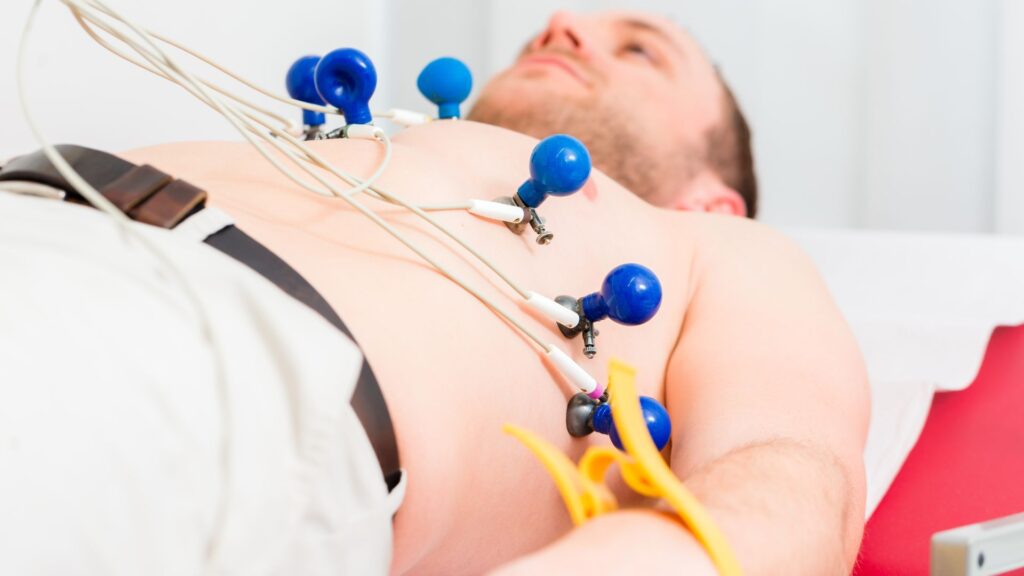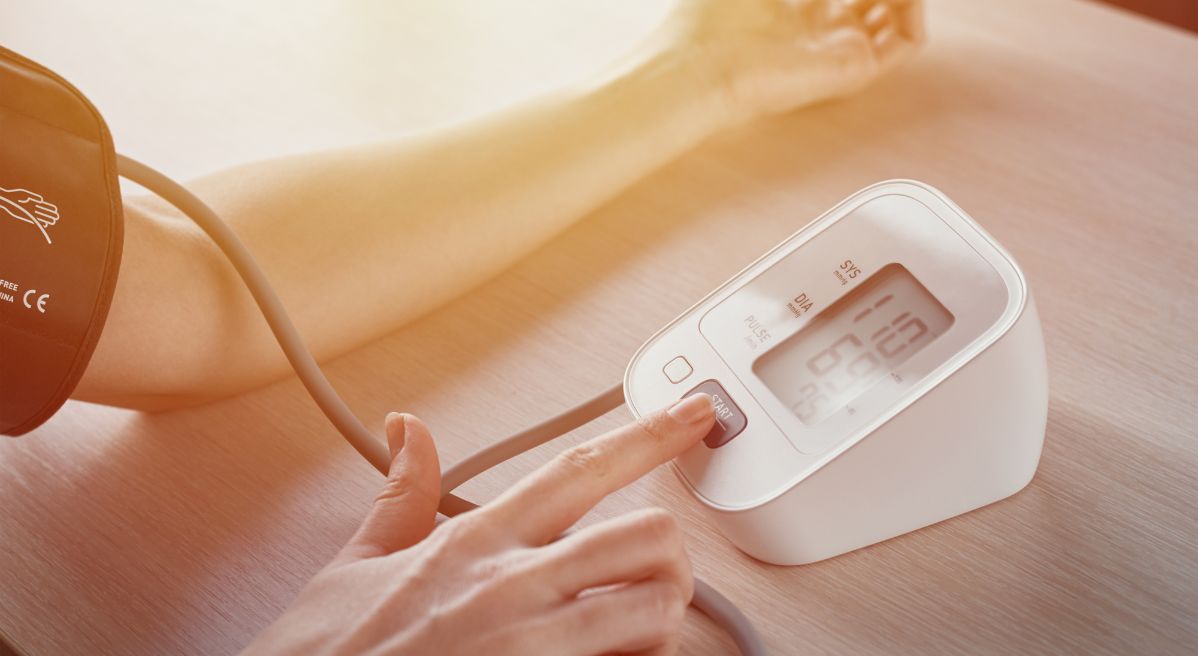Measuring the pulse, or heart rate, is an important and reliable way to assess the condition of the heart and circulatory system. The normal resting pulse for adults ranges from 60 to 100 beats per minute. Generally, a lower resting heart rate indicates more efficient heart function and better cardiovascular fitness. For example, a well-conditioned athlete may have a resting heart rate of around 40 beats per minute.
The pulse can be measured by placing the index and middle fingers on the carotid arteries on the neck. When measuring the pulse at the wrist, two fingers should be placed between the bone and tendon over the radial artery located on the thumb side of the wrist. Once the pulse is felt, the person should count the number of beats for 15 seconds. This number is multiplied by four to obtain the accurate number of beats per minute.
Several factors can influence the heart rate, such as age, fitness level, unhealthy habits like smoking and sedentary lifestyle, cardiovascular diseases, high cholesterol or diabetes, air temperature, body position (e.g., standing or lying down), emotions (stress), and medications.
Conditions where the heart rate exceeds 120-140 beats per minute or falls below 60 beats per minute can be life-threatening and require immediate medical attention. Even a resting heart rate of 90 beats per minute is considered high and a warning sign.
IMPORTANT: Consult your doctor if your resting heart rate is consistently above 100 beats per minute (tachycardia) or if you’re not a professional athlete and your resting pulse is below 60 beats per minute (bradycardia), especially if you experience other signs or symptoms such as fainting, dizziness, or shortness of breath.
Tachycardia is a condition where the resting heart rate is consistently above 100 beats per minute over an extended period. This may be accompanied by fatigue, dizziness, and symptoms resembling fainting.
Bradycardia is a condition where the heart rate is below 60 beats per minute over an extended period. If left untreated, long-term bradycardia can lead to serious conditions. Some underlying causes of bradycardia may include prolonged use of beta-blocker medications, sleep apnea, heart disease, age, and electrolyte imbalance.
Seek the expertise of cardiologists and interventional cardiologists at PULSE Cardiology Center, who have extensive experience in treating heart conditions and can provide a timely diagnosis using state-of-the-art equipment.
Resting heart rate by age:
| Age | Heart rate per minute |
| Newborns up to 1 month old | up to 190 |
| Infant from 1 to 11 months | up to 160 |
| Children aged 1-2 years | 80 to 130 |
| Children aged 3-4 years | 80 to 120 |
| Children aged 5-6 years | 75 to 115 |
| Children aged 7-9 years | 70 to 110 |
| Children older than 10 years and older, including the elderly | 60 to 100
|
| Athletes in peak condition | 40 to 60 |
What is the normal heart rate for children?
The heart rate in children varies depending on their age, and the values are listed in the table.
An increased heart rate or tachycardia in children can be expected in certain situations such as:
- Physical activity of the child
- High emotional stress
- High body temperature
- Bronchitis and allergies
The common characteristic of these benign tachycardias is that they disappear when their cause ceases.
In case of any irregularities in the heart rhythm, you can bring your child to PULSE Cardiology Center, to the Department of Pediatric Cardiology, where they will be examined by the eminent and internationally recognized expert in the field of pediatric cardiology, Prof. Dr. Jovan Košutić.
Normal heart rate in athletes
The average resting heart rate is typically between 60 and 80 beats per minute. If an athlete or someone who exercises regularly has a lower resting heart rate, it is not a cause for concern (unless accompanied by dizziness, fatigue, or illness). In fact, it usually indicates that the person is in good shape.
The resting heart rate of athletes can be considered low compared to the general population. A young, healthy athlete may have a resting heart rate of 30 to 40 beats per minute. Exercise strengthens the heart muscle, allowing it to pump a greater amount of blood with each beat and deliver more oxygen to the muscles. This means that the heart beats fewer times per minute compared to non-athletes.
What is resting heart rate?
Resting heart rate refers to the state when the heart pumps the minimum amount of blood required by the body. Resting heart rate is measured during the day when a person is calm, relaxed, sitting, or lying down and not ill. The absolute resting heart rate is measured immediately upon waking up, and it represents the lowest value of the pulse.
Why is resting heart rate important?
A high or low resting heart rate that deviates from normal values can be a sign of illness or certain health conditions. A high resting heart rate can indicate hormonal imbalance, increased thyroid activity, anemia, or other potential health issues, such as cardiac rhythm disturbances or arrhythmias.
On the other hand, an excessively low resting heart rate can cause dizziness, fatigue, or even fainting, which can be dangerous and should not be ignored. These deviations are certainly a reason for further medical evaluation.
Maximum heart rate
It is also important to determine the normal “maximum” heart rate during intense physical activity and the “target” heart rate for different age groups. To determine the normal maximum heart rate, subtract the age from 220. The target heart rate should be around 50% to 70% of the maximum heart rate during moderate-intensity activities such as walking. During more intense activities like exercise, running, or weightlifting, the target heart rate should be around 70% to 85% of the maximum heart rate.
Pulse in Women
Women typically have a higher average heart rate than men. The differences in pulse between women and men are even more pronounced during pregnancy or menopause when various changes occur in the body.
The average heart rate for adult women ranges from 78 to 82 beats per minute, but a normal range is between 60 and 100. Several factors such as hormones, exercise, and lifestyle choices can affect the heart rate. The average adult male has a heart rate between 70 and 72 beats per minute.
Pregnant women have a higher average heart rate compared to other adults. The heart of a pregnant woman works harder and pumps blood to the uterus. The amount of blood pumped by the heart increases by 30% to 50%. The average heart rate during pregnancy increases to about 90 beats per minute. Pregnancy also increases the heart rate during exercise or other physical activities more than usual. Minor heart arrhythmias are common during pregnancy. For example, about one to two pregnant women experience premature atrial contractions. These arrhythmias do not cause complications and resolve without treatment. More serious arrhythmias, such as diastolic murmurs in the heart, may require treatment.
Why does heart rate vary between men and women?
During puberty, the male heart develops and becomes 15-20% larger than the female heart. This increase in heart size corresponds to the increase in body mass. Every time the heart beats, contractions pump blood through the heart and body. Female hearts, therefore, need to beat faster to pump the same amount of blood because they are smaller than male hearts.
Causes of elevated resting heart rate
Research shows that a higher resting heart rate is associated with elevated blood pressure and body weight, as well as lower physical fitness. In addition to medical conditions such as anemia, high levels of thyroid hormones, or blood clots, certain lifestyle factors such as smoking and an unhealthy diet can cause an increased resting heart rate. Elevated heart rate can also be caused by high temperature, pain, infections, disrupted sleep, high caffeine intake, and stress.
Relationship between blood pressure and heart rate
Heart rate and blood pressure measure two different things, but doctors can use them to assess certain health conditions. Measuring heart rate determines the number of heartbeats per minute, while measuring blood pressure quantifies how forcefully blood is moving through the blood vessels.
Does heart rate affect blood pressure?
Heart rate and blood pressure do not automatically increase at the same rate. It is possible for the heart rate to increase twice as much as the normal heart rate while the blood pressure increases only minimally. In fact, even when the heart beats above the normal rate, healthy blood vessels can dilate to facilitate easier blood flow. For example, heart rate increases during exercise, which helps deliver more blood to the muscles.
If blood pressure is high, blood vessels must pump blood more forcefully throughout the body. When this happens over an extended period, the cardiac tissue may become thicker, making it harder for the heart to pump blood. This leads to a lower heart rate and high blood pressure.
How to lower resting heart rate?
If someone notices an increase in their heart rate during a certain period, even though they haven’t been physically active for a year or two, and they are a healthy individual, an elevated heart rate may indicate the need for physical activity. This activity can be exercise, but it can also be walking or gardening. Over time, regular physical activity will lower the heart rate for most individuals.
When should you visit a doctor regarding your heart rate?
If an elevated heart rate is a result of stress or consuming excessive alcohol or caffeine, it usually isn’t cause for alarm, but it is still necessary to change these unhealthy habits. However, if the heart rate remains consistently elevated for more than a few days and there is no clear cause for this occurrence, it is advisable to visit a doctor.
Whenever the resting heart rate exceeds a certain threshold and enters a dangerous zone, it should be carefully monitored. If it is accompanied by other symptoms, immediate medical intervention may be required. Dangerous heart rates are always dependent on specific factors such as lifestyle, genetics, and diseases. If there is a family history of heart conditions, regular check-ups with a doctor are necessary. Additionally, any medication taken over a prolonged period can lead to unwanted effects that may affect heart rhythm.
If you have a problem with your heart rate, you can seek assistance from the doctors at the PULSE Cardiology Center, who utilize modern diagnostic equipment and procedures to monitor heart rate values and provide the most effective treatment to restore them to normal. One way to restore normal heart rhythm is through cardioversion, a medical procedure used for certain types of arrhythmias.





